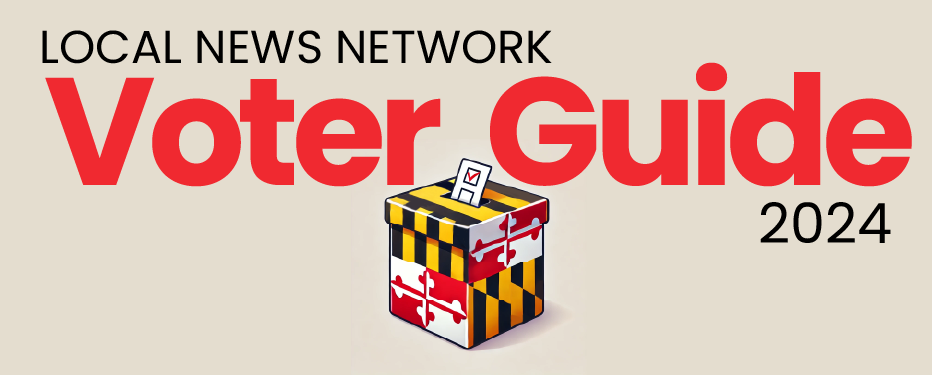Gerry LaFemina
Running for school board in Allegany County
How old will you be on Election Day (Nov. 5)?
56
Are you currently employed? If so, where, and what is your job title?
Professor of English, Frostburg State University.
What is the highest level of education that you completed, and where did you get that degree?
Master of fine arts, creative writing, Western Michigan University.
Why are you running for the school board?
For years I've noticed the preparedness of our incoming students declining, and I wanted to ensure that schools better prepared their students for college or the real world, a world with greater diversity and opportunity than we might find currently in Allegany County. More importantly, we need to understand that schools have a greater role in the community and in student lives than just education—from ensuring that students are fed so they can perform, to working to support their emotional and psychological well-being, schools are doing more than ever to take care of our children. More importantly, the current climate in public education begs for an objective and educated board to help guide the district through stormy weather. As a lifelong learner, and as someone who has worked with students from ages 6 to 66, I believe that my experience and my clear vision give me the capacity to help our students and our schools.
What makes you a good candidate for the board?
School board candidates should, first and foremost, value education with a focus on the broad needs of the students, and unfortunately, many people run for school board with an agenda regarding their children. A school board member needs to advocate for the role of the schools in the community—and value all the players in the schools, from students and teachers to coaches, support staff and administrators. A good candidate understands that each school in the district has a culture, and the board's job is to help sustain and engage that culture, while also helping shape it toward the broader community culture and maintaining educational standards. As a very public member of the community, I will be an advocate for our teachers, our students, and our schools.
What is the most important issue facing your school board and what would you do about it if elected?
Cellphones in the classroom and the impact of social media on our students is the biggest problem we have. Besides being a distraction, the dopamine hit of responding to notifications can have an addictive effect on our students. This can lead to educational and disciplinary issues. Then there's the issue of cyberbullying and other technology-related problems that can go with the use of phones.
Please name a public leader you admire and explain why.
Jimmy Carter. His work as both a political leader and as a social leader with Habitat for Humanity demonstrate his willingness to serve for the greater good.
The Blueprint for Maryland’s Future, passed by the General Assembly in 2021, is a 10-year plan that includes increased education funding to support early childhood education, increased teacher starting pay, college/career-readiness standards for high school graduates, and expanded services to multilingual and impoverished families, among other goals. Please tell us your views on the Blueprint and how it will affect your school district.
The Blueprint for Maryland's Future is a great start to help promote faculty creativity and lessen the significance of standardized tests, which often only measure short-term retention and a student's capacity to take tests. Furthermore, moves to bring in more teachers, lower class sizes and help create more robust learning environments for students are all laudable. Furthermore, although some might see the Blueprint as an unfunded mandate or meddling from Annapolis elites, the Blueprint provides a clear vision for Maryland students as a group. We live in a rapidly changing world, and the Blueprint provides a shared vision to help make sure our students are prepared for the world they'll enter.
The failures of the Blueprint have to do with funding, particularly in a region like Allegany County, which is one of the poorest counties in the state. The school board will have to navigate the budget and community concerns. Having a board that advocates for the Blueprint is key. More importantly, though, the Board has to recognize that the Blueprint will need to adapt to on-the-ground changes.
Some school districts nationwide are placing new limits on the use of cellphones in middle and high schools. What do you think should be the policy on student use of cellphones in your district, and why do you support that policy?
I think cellphone usage is one of the biggest problems facing our students, and while they provide a means to protect students in case something goes wrong in the school, more often than not, cellphones work as an in-class distraction, provide a means for bullying students and others, and provide a means for academic dishonesty.
Are you satisfied with your school district's efforts to ensure the safety of its students? What, if anything, should be done to improve school safety in your district?
In general I think Allegany schools are fairly safe. I loathe the idea of making our schools seem like they're under attack because that provides an atmosphere ripe for distraction. I also worry about the use of police in the schools, which can often lead to escalation of problems rather than mediated solutions. One of the most valuable things schools can teach us is how to interact with others with mutual respect and dignity. This includes interaction among the student body but also between students and faculty, staff and administration.
Do you think there are circumstances when books should be removed from school libraries? If so, what kind of books should be removed, and who should make those decisions?
I don't believe in censorship or book banning. I know this as a literature teacher, most of our students aren't randomly checking books out of school or classroom libraries, which means that the books students choose to read provide validation or respect.
Books teach us how to live in a diverse society. They teach us how to survive heartache, loss and cruelty. They teach us empathy. They teach us how to talk to one another, and the consequences of our actions. Yes, books can make us sad. Yes, books can teach kids about the cruelties of the world. They can cover subjects that might make certain parents uncomfortable, but that's where fostering a dialogue between parents and children comes in. There are books, no doubt, my mother wishes I hadn't read at age 15, but I can guarantee you, I'm glad I did because they prepared me for the world I entered.
Some school districts enact policies allowing transgender and gender nonconforming students to use their preferred pronouns while at the same time not informing those students' parents about that decision. What is your opinion of such policies?
Kids have it hard enough. Kids who feel body dysmorphia and have questions about their identity and sex have it so much harder. It's a fact. I've watched several of my college students struggle. A teacher's goal should always be to provide ways for students to succeed, and one way to do that is to remove whatever small sources of pain they might feel. If referring to a student by a different pronoun makes them feel seen, supported, and respected, and if that then enables them to work well, why wouldn't a teacher—or anyone—want to do that?


